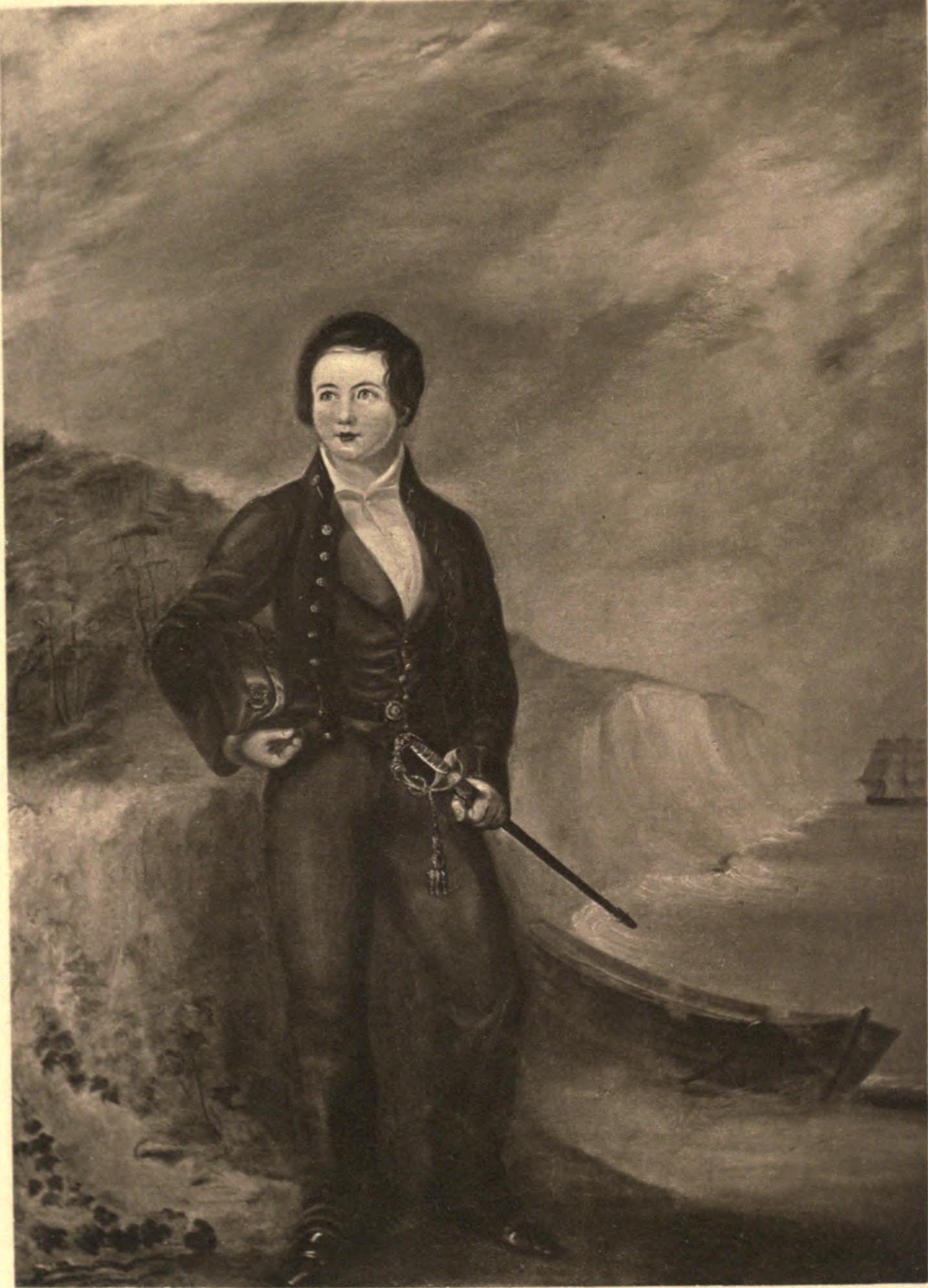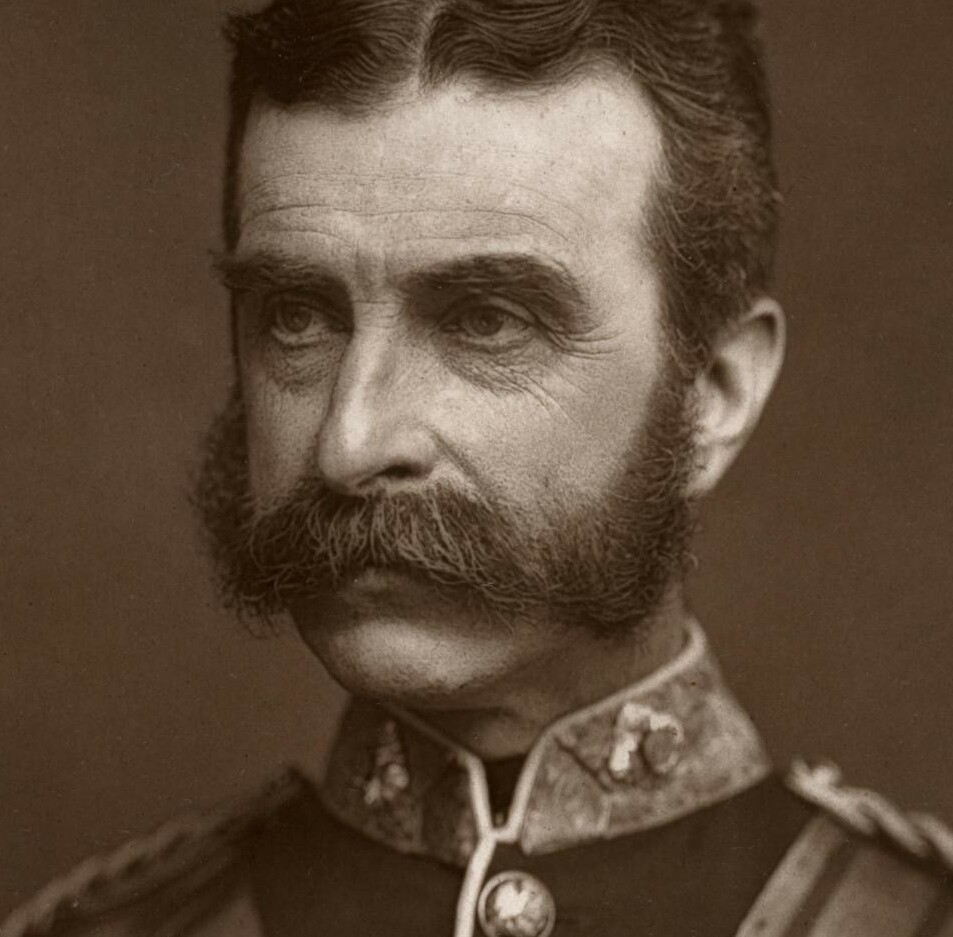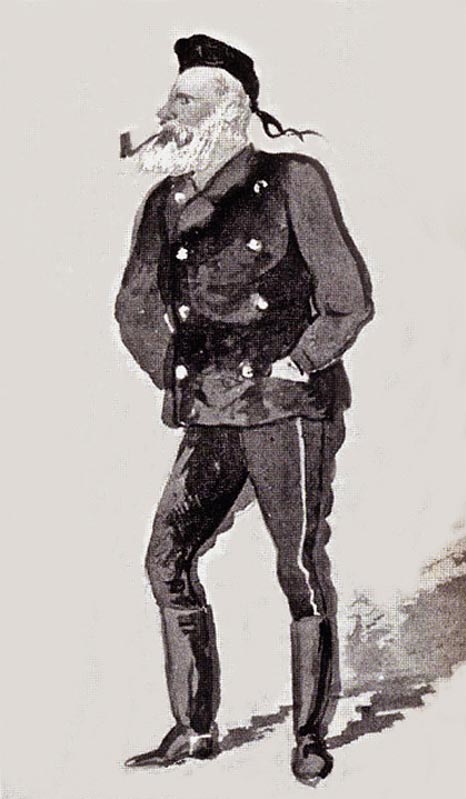|
Francis Clery
Major-General Sir Cornelius Francis Clery (13 February 1838 – 25 June 1926) was a British Army officer who took part in the Anglo-Zulu War and later commanded the 2nd Division during the Second Boer War. Early life Cornelius Frances Clery was born in 2 Sidney Place, Cork, Ireland on 13 February 1838. He was educated at Clongowes Wood College in County Kildare. Military career Clery was commissioned as an ensign into the 32nd Regiment of Foot in 1858. He was promoted to lieutenant in 1859 and captain in 1866. He became an instructor at the Royal Military College, Sandhurst, in 1872, and later became Professor of Tactics. He became Deputy Assistant Adjutant & Quartermaster-General in Ireland in 1875,Greaves (2011), p.163-4 the same year his book, ''Minor Tactics'' was published. The book would be highly influential for at least thirty years. In 1877, he was Deputy Assistant Adjutant & Quartermaster-General at Aldershot.Greaves (2011), p.163-4 South Africa In 1878 ... [...More Info...] [...Related Items...] OR: [Wikipedia] [Google] [Baidu] |
|
 |
Cork (city)
Cork ( , from , meaning 'marsh') is the second largest city in Ireland and third largest city by population on the island of Ireland. It is located in the south-west of Ireland, in the province of Munster. Following an extension to the city's boundary in 2019, its population is over 222,000. The city centre is an island positioned between two channels of the River Lee which meet downstream at the eastern end of the city centre, where the quays and docks along the river lead outwards towards Lough Mahon and Cork Harbour, one of the largest natural harbours in the world. Originally a monastic settlement, Cork was expanded by Viking invaders around 915. Its charter was granted by Prince John in 1185. Cork city was once fully walled, and the remnants of the old medieval town centre can be found around South and North Main streets. The city's cognomen of "the rebel city" originates in its support for the Yorkist cause in the Wars of the Roses. Corkonians sometimes r ... [...More Info...] [...Related Items...] OR: [Wikipedia] [Google] [Baidu] |
|
Ensign (rank)
Ensign (; Late Middle English, from Old French (), from Latin (plural)) is a junior rank of a commissioned officer in the armed forces of some countries, normally in the infantry or navy. As the junior officer in an infantry regiment was traditionally the carrier of the ensign flag, the rank acquired the name. This rank has generally been replaced in army ranks by second lieutenant. Ensigns were generally the lowest-ranking commissioned officer, except where the rank of subaltern existed. In contrast, the Arab rank of ensign, لواء, '' liwa''', derives from the command of units with an ensign, not the carrier of such a unit's ensign, and is today the equivalent of a major general. In Thomas Venn's 1672 ''Military and Maritime Discipline in Three Books'', the duties of ensigns are to include not only carrying the color but assisting the captain and lieutenant of a company and in their absence, have their authority. "Ensign" is ''enseigne'' in French, and '' chorąży'' i ... [...More Info...] [...Related Items...] OR: [Wikipedia] [Google] [Baidu] |
|
|
Battle Of Ulundi
The Battle of Ulundi took place at the Zulu capital of Ulundi (Zulu:''oNdini'') on 4 July 1879 and was the last major battle of the Anglo-Zulu War. The British army broke the military power of the Zulu nation by defeating the main Zulu army and immediately afterwards capturing and burning the royal kraal of oNdini. Prelude After the decisive Zulu victory at the battle of Isandlwana in January over Chelmsford's main column and the consequent defeat of the first invasion of Zululand, the British launched a new invasion of Zululand. In April 1879 despite recent battles at Kambula and Gingindlovu which had resulted in serious losses for the Zulus, the British were back at their starting point. News of the defeat at Isandlwana had hit Britain hard. In response, a flood of reinforcements had arrived in Natal with which Chelmsford prepared a second invasion of Zululand. Lord Chelmsford was aware by mid June that Sir Garnet Wolseley had superseded his command of the British fo ... [...More Info...] [...Related Items...] OR: [Wikipedia] [Google] [Baidu] |
|
 |
Evelyn Wood (British Army Officer)
Field Marshal Sir Henry Evelyn Wood, (9 February 1838 – 2 December 1919) was a British Army officer. After an early career in the Royal Navy, Wood joined the British Army in 1855. He served in several major conflicts including the Indian Mutiny where, as a lieutenant, he was awarded the Victoria Cross, the highest award for valour in the face of the enemy that is awarded to British and Imperial forces, for rescuing a local merchant from a band of robbers who had taken their captive into the jungle, where they intended to hang him. Wood further served as a commander in several other conflicts, notably the Third Anglo-Ashanti War, the Anglo-Zulu War, the First Boer War and the Mahdist War. His service in Egypt led to his appointment as Sirdar where he reorganised the Egyptian Army. He returned to Britain to serve as General Officer Commanding-in-Chief Aldershot Command from 1889, as Quartermaster-General to the Forces from 1893 and as Adjutant General from 1897. Hi ... [...More Info...] [...Related Items...] OR: [Wikipedia] [Google] [Baidu] |
 |
Battle Of Isandlwana
The Battle of Isandlwana (alternative spelling: Isandhlwana) on 22 January 1879 was the first major encounter in the Anglo-Zulu War between the British Empire and the Zulu Kingdom. Eleven days after the British commenced their invasion of Zululand in Southern Africa, a Zulu force of some 20,000 warriors attacked a portion of the British main column consisting of about 1,800 British, colonial and native troops with approximately 350 civilians. The Zulus were equipped mainly with the traditional assegai iron spears and cow-hide shields, but also had a number of muskets and antiquated rifles.Smith-Dorrien, Chapter 1B "It was a marvellous sight, line upon line of men in slightly extended order, one behind the other, firing as they came along, for ''a few of them had firearms'', bearing all before them." eyewitness account, emphasis added The British and colonial troops were armed with the modern Martini–Henry breechloading rifle and two 7-pounder mountain guns deployed as fi ... [...More Info...] [...Related Items...] OR: [Wikipedia] [Google] [Baidu] |
 |
Frederic Thesiger, 2nd Baron Chelmsford
Frederic Augustus Thesiger, 2nd Baron Chelmsford, (31 May 18279 April 1905) was a British Army officer who rose to prominence during the Anglo-Zulu War, when an expeditionary force under his command suffered a decisive defeat at the hands of a Zulu force at the Battle of Isandlwana in 1879. Despite this defeat, he was able to score several victories against the Zulus, culminating in the British victory at the Battle of Ulundi, which ended the war and partly restored his reputation in Britain. Early life Frederic Augustus Thesiger was born 31 May 1827, the eldest child of Frederic Thesiger, a lawyer who later became Lord Chancellor and was created Baron Chelmsford. Thesiger was educated at Eton College. Thesiger's great-uncle Sir Frederick Thesiger was aide-de-camp to Lord Nelson at the Battle of Copenhagen in 1801. Military career He wished to pursue a military career. In 1844, after unsuccessfully trying to obtain a place in the Grenadier Guards, he purchased a com ... [...More Info...] [...Related Items...] OR: [Wikipedia] [Google] [Baidu] |
 |
Richard Glyn (British Army Officer)
Lt Gen Richard Thomas Glyn (23 December 1831 – 21 November 1900) was a British Army officer. He joined the 82nd Regiment of Foot (Prince of Wales's Volunteers) by purchasing an ensign's commission in 1850. Glyn served with the regiment in the Crimean War and rose in rank to captain before transferring to the 24th (The 2nd Warwickshire) Regiment of Foot in 1856. He served with that regiment in the Indian Mutiny and was appointed to command it in 1872. In 1875 he accompanied the 1st battalion of the regiment on service in the Cape Colony and fought with them in the 9th Cape Frontier War of 1877–78. He was appointed a Companion of the Order of the Bath after the war. Glyn commanded No. 3 Column, including men from both battalions of his regiment, during the first British invasion of Zululand in 1879. Whilst Glyn was accompanying Lieutenant-General Lord Chelmsford on a reconnaissance, the column's camp was attacked and almost wiped out in the Battle of Isandlwana. Glyn comman ... [...More Info...] [...Related Items...] OR: [Wikipedia] [Google] [Baidu] |
|
Colonel (United Kingdom)
Colonel (Col) is a rank of the British Army and Royal Marines, ranking below brigadier, and above lieutenant colonel. British colonels are not usually field commanders; typically they serve as staff officers between field commands at battalion and brigade level. The insignia is two diamond-shaped pips (properly called "Bath Stars") below a crown. The crown has varied in the past with different monarchs; Elizabeth II's reign used St Edward's Crown. The rank is equivalent to captain in the Royal Navy and group captain in the Royal Air Force. Etymology The rank of colonel was popularized by the tercios that were employed in the Spanish Army during the 16th and 17th centuries. General Gonzalo Fernández de Córdoba divided his troops in to ''coronelías'' (meaning "column of soldiers" from the Latin, ''columnella'' or "small column"). These units were led by a ''coronel''. This command structure and its titles were soon adopted as ''colonello'' in early modern Italian an ... [...More Info...] [...Related Items...] OR: [Wikipedia] [Google] [Baidu] |
|
|
Sekhukhuneland
Sekhukhuneland or Sekukuniland ( af, Sekoekoeniland) is a natural region in north-east South Africa, located in the historical Transvaal zone, former Transvaal Province, also known as Bopedi (meaning “land of Bapedi”). The region is named after the 19th-century King, Sekhukhune I. Geography This region is mainly covered by grassland and was inhabited traditionally by the Bapedi in an area stretching across central and northern Transvaal. Sekhukhuneland lies in present-day Limpopo and Mpumalanga provinces, between the Olifants River (Lepelle) and its tributary the Steelpoort River (Tubatse); bordered on the east by the Drakensberg Range, and crossed by the Thaba Ya Sekhukhune in the southeast and the Leolo Mountains in the north. History At the height of the Pedi power under Thulare, about 1790–1820, historical Sekhukhuneland included an area stretching from the site of present-day Rustenburg in the west to the Lowveld in the east, and ranging as far south as the Vaal ... [...More Info...] [...Related Items...] OR: [Wikipedia] [Google] [Baidu] |
|
|
Griqualand West
Griqualand West is an area of central South Africa with an area of 40,000 km2 that now forms part of the Northern Cape Province. It was inhabited by the Griqua people – a semi-nomadic, Afrikaans-speaking nation of mixed-race origin, who established several states outside the expanding frontier of the Cape Colony. It was also inhabited by the pre-existing Tswana and Khoisan peoples. In 1873 it was proclaimed as a British colony, with its capital at Kimberley, and in 1880 it was annexed by the Cape Colony. When the Union of South Africa was formed in 1910, Griqualand West was part of the Cape Province but continued to have its own "provincial" sports teams. Early history The indigenous population of the area were the Khoi-khoi and Bushmen peoples, who were hunter-gatherers or herders. Early on they were joined by the agriculturalist Batswana, who migrated into the area from the north. They comprised the majority of the population throughout the region's history, up unt ... [...More Info...] [...Related Items...] OR: [Wikipedia] [Google] [Baidu] |
|
|
Major (United Kingdom)
Major (Maj) is a military rank which is used by both the British Army and Royal Marines. The rank is superior to captain and subordinate to lieutenant colonel. The insignia for a major is a crown. The equivalent rank in the Royal Navy is lieutenant commander, and squadron leader in the Royal Air Force. History By the time of the Napoleonic wars, an infantry battalion usually had two majors, designated the "senior major" and the "junior major". The senior major effectively acted as second-in-command and the majors often commanded detachments of two or more companies split from the main body. The second-in-command of a battalion or regiment is still a major. File:British-Army-Maj(1856-1867)-Collar Insignia.svg, 1856 to 1867 major's collar rank insignia File:British-Army-Maj(1867-1880)-Collar Insignia.svg, 1867 to 1880 major's collar rank insignia File:British&Empire-Army-Maj(1881-1902).svg, 1881 to 1902 major's shoulder rank insignia During World War I, majors wore the foll ... [...More Info...] [...Related Items...] OR: [Wikipedia] [Google] [Baidu] |
|
 |
Aldershot Command
Aldershot () is a town in Hampshire, England. It lies on heathland in the extreme northeast corner of the county, southwest of London. The area is administered by Rushmoor Borough Council. The town has a population of 37,131, while the Farnborough/Aldershot built-up area, Aldershot Urban Area, a loose conurbation (which also includes other towns such as Camberley, Farnborough, Hampshire, Farnborough, and Farnham) has a population of 243,344, making it the thirtieth-largest urban area in the UK. Aldershot is known as the "Home of the British Army", a connection which led to its rapid growth from a small village to a Victorian era, Victorian town. History Early history The name may have derived from alder trees found in the area (from the Old English 'alder-holt' meaning copse of alder trees). Any settlement, though not mentioned by name, would have been included as part of the Hundred (division), Hundred of Crondall referred to in the Domesday Book of 1086. The Church of St M ... [...More Info...] [...Related Items...] OR: [Wikipedia] [Google] [Baidu] |